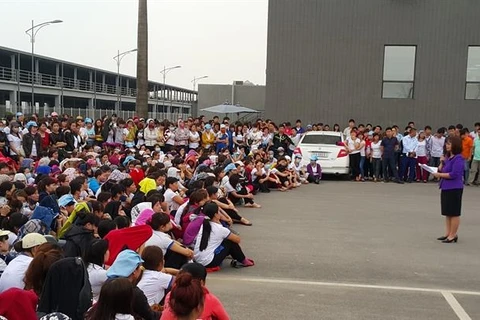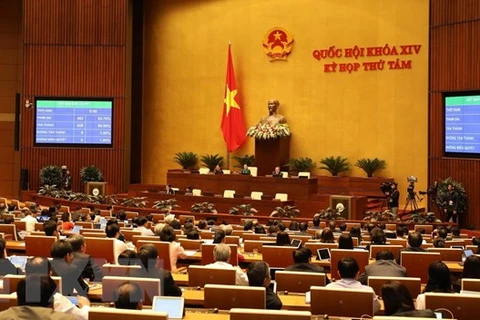HCM City (VNA) – The International Labour Organisation (ILO) has praised Vietnam’s adoption of the revised Labour Code on November 20, saying that the code will held everyone gain fair benefits of economic growth.
The ILO described the adoption as the latest move to bring the country’s legal framework closer to international standards.
“This is significant progress as it will substantially improve Vietnam’s employment and industrial relations and create a solid foundation for fair international integration and trade,” said ILO Vietnam Director Chang-Hee Lee.
The organisation noted the fifth edition of the Labour Code (following its 1994, 2002, 2006 and 2012 versions) creates an improved legal framework for employment relations, working conditions, and the representation of employers and workers. It also places greater emphasis on the use of voluntary collective negotiations, which are required for a modern socialist-oriented market economy in the process of deeper global integration.
The most important change in the revised Labour Code, comprising 17 chapters with 220 articles, is the ability of workers in enterprises to exercise their rights to form or join a representative organisation of their own choosing.
“Freedom of association is a fundamental right under the ILO’s 1998 Declaration on Fundamental Principles and Rights at Work. It helps improve the collective bargaining process that enables workers to get a fairer share of the profits and enterprises to negotiate the productivity improvements necessary for them,” Lee said.
The progress can be seen in new definitions for discrimination and harassment and new freedoms given to workers to leave their job upon condition of giving appropriate notice. The code also provides clearer guidance relating to forced labour and minor workers, which make it easier for employers to understand what is and is not permitted and should enhance the ability of labour inspectors to advise and enforce in these areas.
Another big improvement is the expansion of the scope of the Labour Code to protect workers who are employed but have not been provided with written employment contracts.
Respecting ILO fundamental conventions is a central requirement of the new generation of free trade agreements, including the Comprehensive and Progressive Agreement for Trans-Pacific Partnership (CPTPP) and the EU-Vietnam Free Trade Agreement (EVFTA) as well as pivotal to corporate social responsibility policies of many multi-national corporations.
“The revised Labour Code, which paves the way for the move towards the full realisation of the 1998 ILO Declaration, is so important because it provides a better legal framework for employment and industrial relations, and for equitable and sustainable growth, as Vietnam makes concerted efforts to become an upper middle income country. It will greatly contribute to the progressive realisation of decent work for all working women and men,” Lee added./.

























